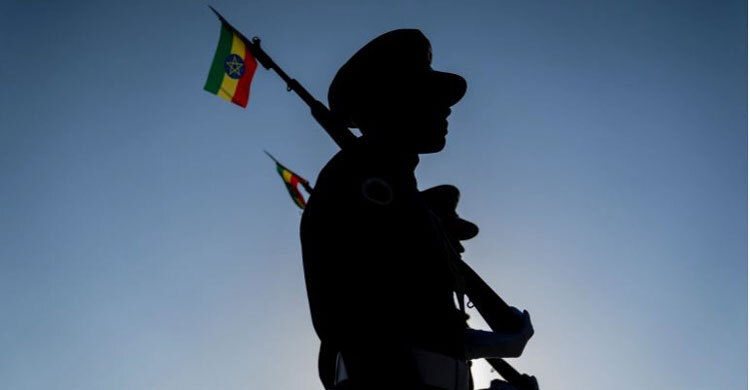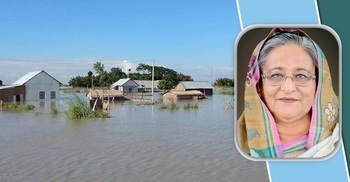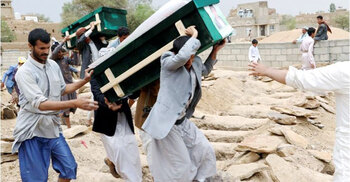France, Germany latest countries to urge nationals to leave Ethiopia

More countries have told their nationals to leave Ethiopia, where an intensifying one-year war between federal troops and forces from the northern Tigray region appears to be taking a dramatic new turn.
Prime Minister Abiy Ahmed late on Monday announced he would head to the front line on Tuesday to lead his soldiers, declaring: “We are now in the final stages of saving Ethiopia.”
On Tuesday, France advised its citizens to leave Ethiopia “without delay”. Germany also called on its citizens to leave the country on the first available commercial flights, following similar advisories by the United States and the United Kingdom in recent weeks, citing a deteriorating security situation.
Meanwhile, the United Nations said it was “temporarily relocating” families of international staff from Ethiopia, adding that its personnel would remain in the country.
“We will continue to monitor the situation as it evolves, keeping in mind the safety of our staff and the need to continue to stand and deliver and to continue operations and support all the people that need our assistance,” spokesman Stephane Dujarric said on Tuesday.
The moves came as the Tigrayan forces claimed in recent weeks to be moving closer to the capital, Addis Ababa.
Much of northern Ethiopia is under a communications blackout and access for journalists is restricted, making battlefield claims difficult to corroborate.
But officials in Addis Ababa insisted on Tuesday that security forces, including youth groups, were working to ensure the capital’s peace and stability and told the diplomatic community not to worry. The government, which has declared a six-month state of emergency, has previously also accused their rivals of exaggerating their territorial gains.
“The propaganda and terror talk being disseminated by the Western media fully contradicts the peaceful state of the city on the ground, so the diplomatic community shouldn’t feel any worry or fear,” said Kenea Yadeta, head of the Addis Ababa Peace and Security Bureau.
Samuel Getachew, an independent journalist in Addis Ababa, told Al Jazeera the capital was “a city that is quiet at night” amid the ongoing state of emergency.
“There are many people that are fleeing Addis Ababa, including French and Turkish citizens,” he said, noting that Abiy’s announcement that he was heading to the front line “was a shock to many people”.
“Both sides are willing to fight to the end, use military power to solve the differences,” he added. “Many allegations going back and forth between the two sides.”
Kenya, South Africa urge ceasefire
Northern Ethiopia has been racked by conflict since November 2020 when Abiy sent troops into the Tigray region to topple the Tigray People’s Liberation Front (TPLF) after months of tensions with the party, which dominated national politics for three decades.
The 2019 Nobel Peace Prize winner promised a swift victory, but by late June the TPLF had regrouped and retaken most of Tigray, including its regional capital, Mekelle.
Since then, the Tigrayan forces have pushed into the neighbouring Afar and Amhara regions and this week claimed control of Shewa Robit, just 220km (135 miles) northeast of Addis Ababa by road. The government has not responded to requests about the status of Shewa Robit.
The African Union’s special envoy for the Horn of Africa, Olusegun Obasanjo, has been leading a frantic push to broker a ceasefire, but so far there has been little concrete progress.
On Tuesday, the US special envoy for the Horn of Africa reported “progress” towards a diplomatic settlement between the warring sides, but warned it risked being eclipsed by “alarming developments” on the ground.
“While there’s some nascent progress, that is highly at risk of being outpaced by the military escalation on the two sides,” Jeffrey Feltman told reporters after returning from a mission to Addis Ababa.
Asked about the battle lines on the ground, Feltman said “it seems to us” that the Ethiopian army and their allies “have been able to more or less stem” the Tigrayan forces’ advances towards the strategic town of Mille in Afar region, which lies along the highway linking the port of Djibouti to landlocked Ethiopia.
“Whereas,” he added, it looks as though the Tigrayan forces “in the information we have has been able to move past some of the defensive lines on the road to Addis - the defensive line that was Ataye, the defensive line at Shewa Robit, down toward Debre Sina.”
Separately, the leaders of South Africa and Kenya on Tuesday urged the rival parties to commit to an immediate ceasefire and political dialogue.
But Abiy, who won the Nobel Prize in 2019 for forging peace with neighbouring Eritrea, himself cast doubts on the prospects for a peaceful solution.
“Starting tomorrow, I will mobilise to the front to lead the defence forces,” he said on Monday.
“Those who want to be among the Ethiopian children who will be hailed by history, rise up for your country today. Let’s meet at the front.”
It came weeks after the government declared a six-month state of emergency and called on all able citizens to join the fight.
Vicki Huddleston, former US charges d’affaires at the US embassy in Ethiopia, told Al Jazeera “the threat has increased exponentially” despite the various international efforts, including by the African Union and the US, to secure a peaceful solution.
“What has happened now is the prime minister himself says he’s going to the field to lead his forces and that he wants all those who support him to follow and join in the military campaign,” she said. “That says to me the possibilities of a negotiated peace are dwindling or non-existent at this point, which means that Addis in under great threat and it also means there’s likely to be considerably more suffering,” Huddleston added.
“I see it as an increasingly desperate situation, and the prime minister himself appears to be very desperate, as well.”
Meanwhile, the UN on Tuesday launched a major drive to deliver food aid to two towns in northern Ethiopia despite the looting of warehouses.
The UN’s World Food Programme said the “major food assistance operation” would serve more than 450,000 people during the next two weeks in the Amhara towns of Kombolcha and Dessie which lie at a strategic crossroads on the main highway to Addis Ababa.
Source: Aljazeera and news agencies





